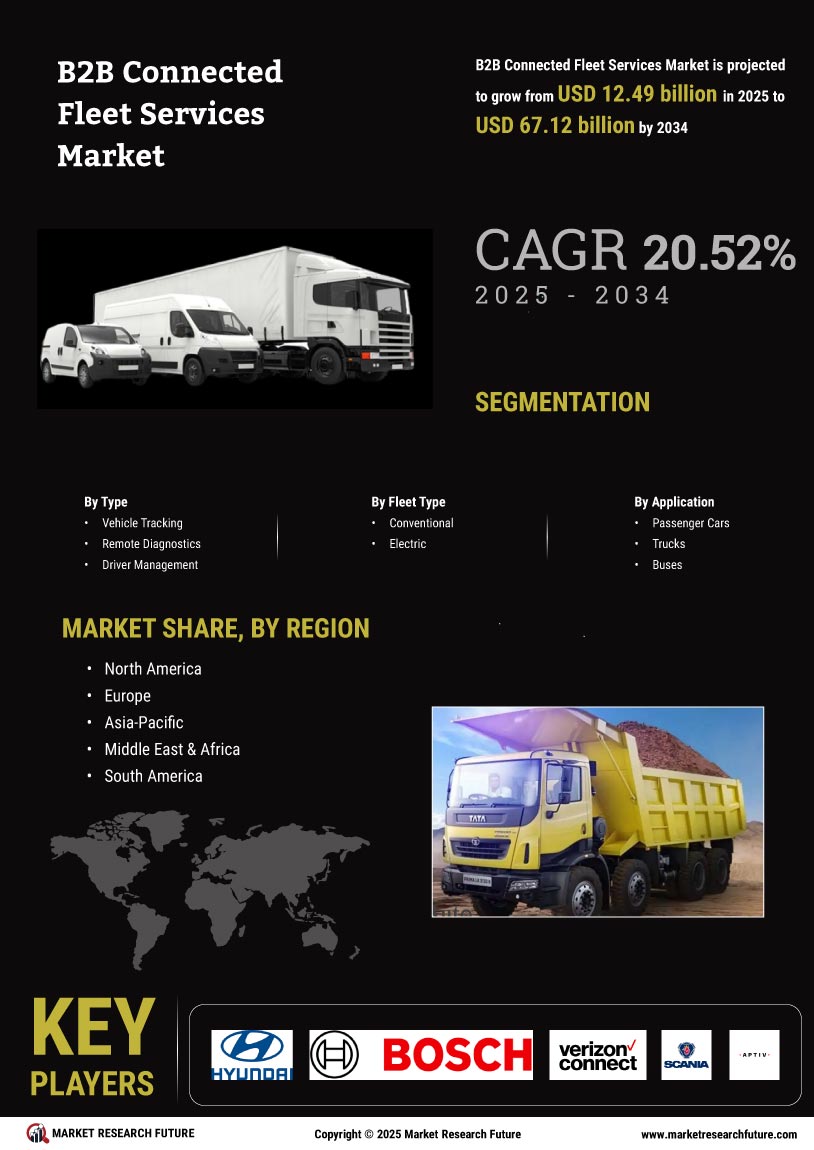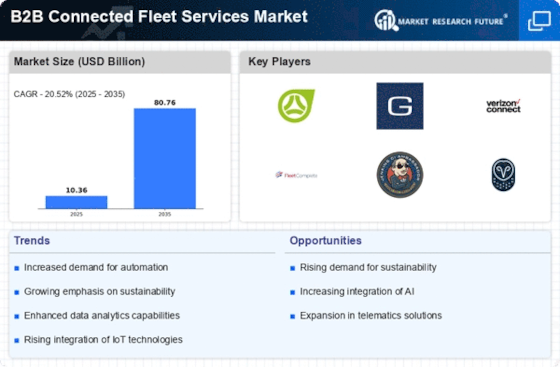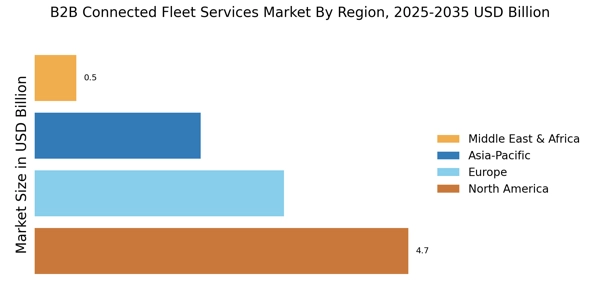Increased Focus on Cost Reduction
The B2B Connected Fleet Services Market is witnessing a heightened focus on cost reduction strategies among businesses. Fleet operators are increasingly recognizing the potential of connected services to streamline operations and minimize expenses. By leveraging data analytics and telematics, companies can identify inefficiencies and implement corrective measures. Reports suggest that organizations utilizing connected fleet services can achieve cost savings of up to 30% through optimized routing and predictive maintenance. This emphasis on cost efficiency is driving the adoption of connected fleet solutions, as businesses seek to enhance profitability while maintaining service quality.
Advancements in Vehicle Connectivity
The B2B Connected Fleet Services Market is poised for growth due to rapid advancements in vehicle connectivity technologies. The proliferation of 5G networks and enhanced satellite communication systems are enabling more reliable and faster data transmission. This connectivity allows fleet operators to access real-time information regarding vehicle performance, location, and driver behavior. As a result, businesses can make informed decisions that enhance operational efficiency. Market data indicates that the adoption of connected vehicle technologies is expected to grow at a compound annual growth rate (CAGR) of over 25% in the coming years, highlighting the critical role of connectivity in shaping the future of fleet services.
Rising Demand for Fleet Optimization
The B2B Connected Fleet Services Market is experiencing a notable surge in demand for fleet optimization solutions. Companies are increasingly seeking ways to enhance operational efficiency and reduce costs associated with fleet management. According to recent data, organizations utilizing connected fleet services have reported up to a 20% reduction in fuel consumption and a 15% decrease in maintenance costs. This trend is driven by the need for real-time tracking and data-driven decision-making, which are facilitated by advanced telematics and IoT technologies. As businesses strive to improve their bottom line, the adoption of connected fleet services becomes a strategic imperative, positioning the industry for sustained growth.
Regulatory Compliance and Safety Standards
The B2B Connected Fleet Services Market is significantly influenced by the increasing emphasis on regulatory compliance and safety standards. Governments and regulatory bodies are implementing stringent regulations aimed at enhancing road safety and reducing emissions. For instance, mandates for electronic logging devices (ELDs) in commercial vehicles have propelled the adoption of connected fleet services. Companies are compelled to invest in these technologies to ensure compliance, thereby driving market growth. The integration of safety features, such as collision avoidance systems and driver behavior monitoring, further underscores the importance of connected fleet services in meeting regulatory requirements and enhancing overall fleet safety.
Growing Importance of Sustainability Initiatives
The B2B Connected Fleet Services Market is increasingly shaped by the growing importance of sustainability initiatives. Companies are under pressure to reduce their carbon footprint and adopt environmentally friendly practices. Connected fleet services facilitate this transition by providing insights into fuel consumption and emissions, enabling businesses to implement greener strategies. Data indicates that fleets utilizing connected services can reduce emissions by as much as 25% through optimized driving patterns and route planning. As sustainability becomes a core business objective, the demand for connected fleet services is likely to rise, positioning the industry as a key player in the broader movement towards environmental responsibility.

















